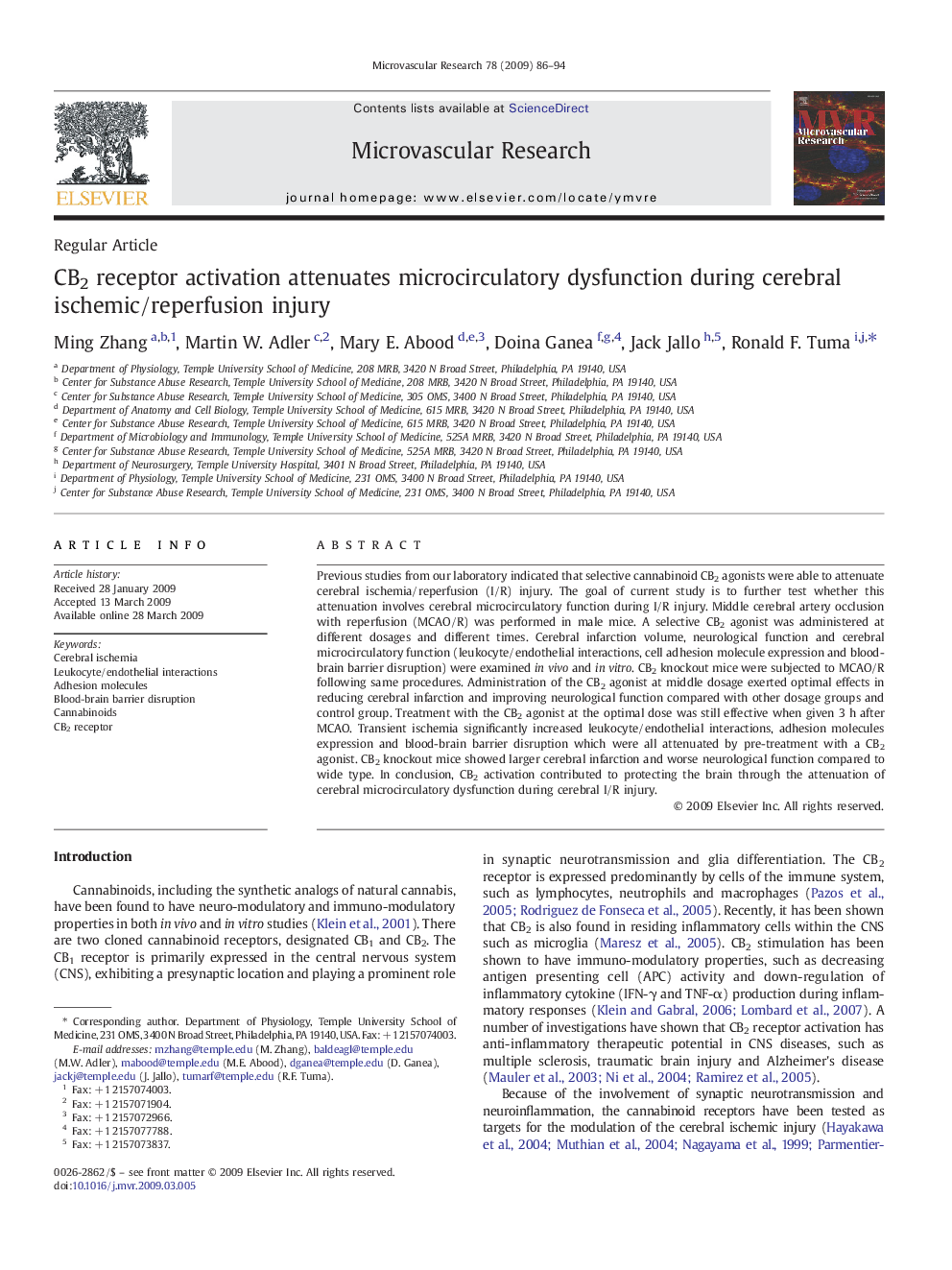| Article ID | Journal | Published Year | Pages | File Type |
|---|---|---|---|---|
| 1995285 | Microvascular Research | 2009 | 9 Pages |
Previous studies from our laboratory indicated that selective cannabinoid CB2 agonists were able to attenuate cerebral ischemia/reperfusion (I/R) injury. The goal of current study is to further test whether this attenuation involves cerebral microcirculatory function during I/R injury. Middle cerebral artery occlusion with reperfusion (MCAO/R) was performed in male mice. A selective CB2 agonist was administered at different dosages and different times. Cerebral infarction volume, neurological function and cerebral microcirculatory function (leukocyte/endothelial interactions, cell adhesion molecule expression and blood-brain barrier disruption) were examined in vivo and in vitro. CB2 knockout mice were subjected to MCAO/R following same procedures. Administration of the CB2 agonist at middle dosage exerted optimal effects in reducing cerebral infarction and improving neurological function compared with other dosage groups and control group. Treatment with the CB2 agonist at the optimal dose was still effective when given 3 h after MCAO. Transient ischemia significantly increased leukocyte/endothelial interactions, adhesion molecules expression and blood-brain barrier disruption which were all attenuated by pre-treatment with a CB2 agonist. CB2 knockout mice showed larger cerebral infarction and worse neurological function compared to wide type. In conclusion, CB2 activation contributed to protecting the brain through the attenuation of cerebral microcirculatory dysfunction during cerebral I/R injury.
